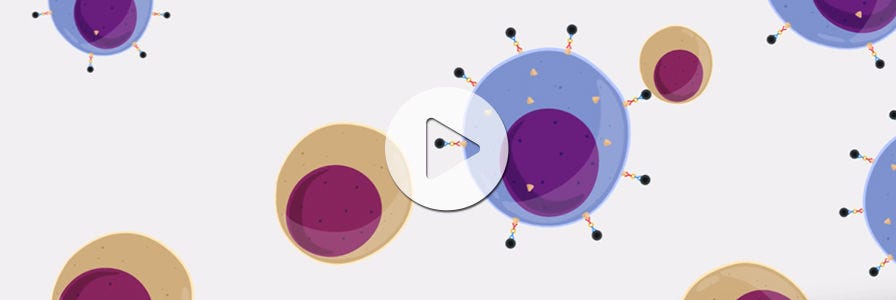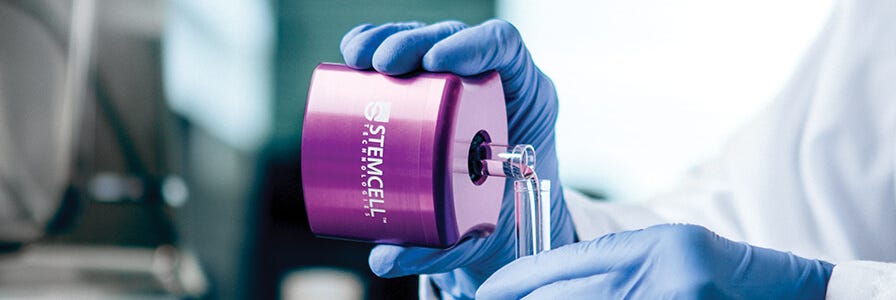Dr. Susanne Heinzel describes her work studying the molecular and cellular mechanisms underlying the regulation of clonal expansion of lymphocytes
Understanding the Rules That Govern the Clonal Expansion of Lymphocytes

Dr. Susanne Heinzel is a Senior Research Scientist at the Walter and Eliza Hall Institute of Medical Research in Melbourne and a past President of the Australasian Society for Immunology. Susanne’s research currently focuses on the regulation of clonal expansion of lymphocytes, including the molecular and cellular mechanisms involved. In this interview, Susanne shares her story on how she developed a passion for immunology and what led to her career in academia. She also discusses the significance of her research and shares advice for the next generation of scientists.
From Zoology to Immunology: Discovering the Wonders of the Immune Response
What inspired you to pursue a career in science?
My family has always been science oriented, so it seemed the natural thing to do. I have always been curiosity-driven. I considered medicine for a while but then decided that I want to find out how things work rather than apply what other people have discovered. Plus, I have a terrible memory for names (including of drugs) so I'd make a terrible clinician...
Why did you choose to specialize in immunology?
I think I always knew I wanted to do science, but I wasn't so clear about what exactly I wanted to do. My journey hasn't been very straight forward at all. My expertise now is in immunology, but I actually majored in zoology and had no idea what immunology was until I started my PhD in tumour immunology. I'm predominantly self-taught in that field; the first lecture in immunology I ever attended is one I gave as a postdoc. The more I learned about it, the more I got excited about the wonders of the immune response, particularly the activation and the control of the adaptive immune system. I mean, how cool is clonal expansion of antigen specific T cells! I was hooked!
Tell us about your scientific journey.
After my PhD I continued to explore how we can harness the immune system to fight cancer and moved to Australia for my postdoc.
I went on and joined a small biotech company for a few years working on vaccine design with a novel adjuvant. We did some successful clinical trials, but it became evident that my passion really is in basic research. So I went “back” to basic science and moved to the Walter and Eliza Hall Institute (WEHI) in Melbourne which was one of the best decisions I've ever made. One of the most important lessons I have learned along the way is to take your chances and to follow your instincts. And to never stop being curious.
I also got involved in the Australasian Society for Immunology (ASI) soon after arriving in Australia, which has been incredibly helpful. Meeting and interacting with ASI members has really helped to get established in Australia. ASI brings together a wonderful group of scientists that are passionate about immunology and I was very privileged to have been President of ASI for the past 2 years.
One of the most important lessons I have learned along the way is to take your chances and to follow your instincts. And to never stop being curious.
Investigating How Clonal Expansion is Regulated
Tell us about your current role and your research.
I'm senior research scientist at the Walter and Eliza Hall Institute (WEHI) in Melbourne. The WEHI is a great place to do work and has a very rich history in immunology, particularly the understanding of the adaptive immune response. It was the home of Sir Macfarlane Burnet for many years including when he developed his clonal selection theory. Our work builds on this. We investigate how clonal expansion is regulated and aim to identify the molecular and cellular mechanisms that regulate the clonal expansion of lymphocytes. We have identified that the number of times lymphocytes divided after stimulation is imprinted in the founder cells of the clone and that this is regulated by a molecular timer.
What is the significance of your research?
Understanding the rules that govern the proliferative potential and the fate of lymphocytes is critical to better understand how the immune system responds to infections or vaccines. Furthermore, understanding the mechanisms that control the rapid expansion and consequent contraction of lymphocytes after activation will help to understand where things may go wrong in the uncontrolled expansion observed in lymphoma.
“Academic research will always be hard, but it will also always be fun”
What do you find most enjoyable about research?
For me, the most enjoyable part of science is to develop hypotheses, to test them and then to build new ideas and hypotheses based on the results. I love dissecting complex systems and breaking them down into components.
Outside of my own work, I love observing the next generation of scientists grow up. There are few things that are more rewarding than observing a PhD student develop from a student into an independent scientist in their own right.
Do you have any advice for new grad students entering academia?
Academic research will always be hard, but it will also always be fun. And it will never ever be all done. It may not be obvious now, but there is always more to learn and to find out. I'd always advise students to give it a try. Most people work out quickly whether a life in science is for them. In my mind, research is not a job, it's a passion. It can't be done half-hearted. But if the passion is there, it is the most rewarding thing. But it is getting more and more difficult to get funding and to find your niche.
In my mind, research is not a job, it's a passion. It can't be done half-hearted. But if the passion is there, it is the most rewarding thing.
Isolating Mouse and Human Lymphocytes
What cells do you isolate for your research?
We investigate the rules that regulate the clonal expansion of lymphocytes. For that we need very pure populations of naïve or memory B cells and CD4+ or CD8+ T cells from mice and humans. We isolate these cells from murine lymph nodes or spleen and from human peripheral blood.
Which cell isolation products have you used?
We use STEMCELL’s cell isolation kits to isolate all the populations mentioned above (naïve or memory B cells and CD4+ or CD8+ T cells from mice and humans). We have moved to column free isolation for convenience; it is a bit more flexible and faster.
Learn More About Immune Cell Isolation using EasySep™
How Does EasySep™ Work?
Watch a short video describing how this immunomagnetic cell separation technology can let you isolate cells faster.
Try EasySep™ in Your Lab
Isolate highly purified immune cell subsets in as little as 8 minutes with a simple pour.
View more Immunology Profiles or nominate yourself to be featured in a profile piece. You can also explore selected publications showcasing other ways that cells isolated with EasySep™ are used to advance immunology research.
Request Pricing
Thank you for your interest in this product. Please provide us with your contact information and your local representative will contact you with a customized quote. Where appropriate, they can also assist you with a(n):
Estimated delivery time for your area
Product sample or exclusive offer
In-lab demonstration




